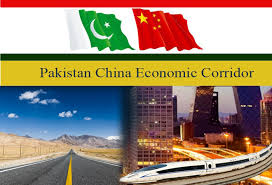By Farrukh Karamat
Much has been written about the dwindling inflows for Pakistan from Inward Workers’ Remittances, Exports, and Foreign Direct Investment (FDI); and, the rising outflows from Imports, Debt Repayment, and Repatriations. The government has been placing an increasing reliance on borrowings to plug the gaps and the country continues to be burdened with additional debt. Social sectors continue to receive meagre funding and healthcare, education, housing, water and sanitation sectors continue to lag in the face of a rapidly rising population. The focus appears to be on the ‘high-visibility’ ‘vote-generating’ projects such as transport, roads, and construction. The recent case in point being the multi-billion rupee subsidized Metro Line, Orange Line and Speedo Bus service projects. At a time when the country needs to increase its revenue-generating capacity, the government has continued to dole out massive subsidies, as was recently evident in the Textile and Fertilizer segment, meant to appease a certain section of the populace. Tax amnesty schemes continue to pop-up from time to time, apparently when it suits the purpose. What is missing are genuine structural reforms for capacity enhancement, which have been replaced by reactive ad-hoc regulations meant to achieve short-term objectives.
Amidst this ‘mayhem’ is a small tax base that stubbornly refuses to budge, while the government continues to provide subsidies and concessions. The US$56 billion China-Pakistan Economic Corridor (CPEC) is no exception and has been granted considerable concessions through amendment of the definitions of items and projects. Chinese investors have been granted multiple exemptions from customs duties, income taxes, sales taxes, federal excise duties and withholding taxes. In August 2016, the Economic Coordination Committee (ECC) of the cabinet, chaired by the finance minister, approved tax exemptions for two Chinese firms working on two infrastructure projects – the China State Construction Company Engineering Company (CSCEC) and the China Communication Construction Company (CCCC). The ECC took the decision on the day that the Supreme Court of Pakistan barred the government from taking decisions on fiscal matters without the approval of the federal cabinet. The ECC changed the definition of construction machinery by including dumpers and special purpose motor vehicles to provide additional benefits to the Chinese firms. These exemptions were over and above the Rs.33 billion in tax benefits that the ECC extended to these companies a month earlier.
It has been estimated that the exemptions to the Chinese firms, offered through Statutory Regulatory Orders (SRO’s) amount to Rs.150 billion in terms of lost revenues for the government. The salient features of the exemptions include:
- Exemptions from levy of custom duties at the import stage to Chinese contractors for projects in the road, mass transit, transport as a whole and Gwadar port. These include exemption of customs duties on the import of plant machinery and equipment, not locally manufactured, by the CSCEC and CCCC for the construction of Sukkur-Multan section of Karachi-Peshawar Motorway and Karakoram Highway Phase-II (Thakot-Havelian section), respectively; and, the customs duty exemptions on the import of equipment and material for Lahore’s Orange Line Metro Train project.
- Customs duty exemptions have been extended on imports to the concession holder and its operating companies for the construction, operations and development of Gwadar port and all port-related businesses established in Gwadar free zone.
- For the power sector, a concessionary duty rate of zero per cent, 3 per cent, and 5 per cent on the import of machinery, equipment and spare parts, not locally manufactured, is available for generation projects using oil, gas, coal, wind and tidal energy.
- The income derived from port operations by the China Overseas Ports Holding Company Limited, the China Overseas Ports Holding Company Pakistan (Private) Limited, the Gwadar International Terminal Limited, the Gwadar Marine Services Limited and the Gwadar Free Zone Company Limited has been granted exemption from income tax for 23 years, with effect from Feb 6, 2007.
- Income generated by contractors and sub-contractors of those five companies from port operations has been granted income tax exemption for 23 years from July 1, 2016.
- Income and interest earned by a foreign lender or a local bank – with more than 75 per cent government or State Bank of Pakistan shareholding – are exempt from income tax for 23 years with effect from July 1, 2016.
- Dividends received by the China Overseas Ports Holding Company from the China Overseas Ports Holding Company Pakistan (Private) Limited, the Gwadar International Terminal Limited, the Gwadar Marine Services Limited and the Gwadar Free Zone Company Limited have been granted income tax exemption for 23 years from July 1, 2016.
- Exemptions from sales tax and federal excise duty have been provided on materials and equipment for construction and operation of Gwadar port and Gwadar Free Zone through the Finance Act, 2016 to the China Overseas Ports Holding Company Pakistan (Private) Limited and its operating companies, their contractors and sub-contractors. This exemption is equally available for imported and locally-manufactured materials and equipment.
- Plant machinery and equipment, including dumpers and special purpose motor vehicles, imported for the construction of the Karachi-Peshawar Motorway Project and the KKH Phase-II are also exempt from income tax and sales tax.
- Exemption from sales tax and federal excise duty has also been granted to machinery, apparatus, materials etc. imported by the China Railway Corporation for the Orange Line project.
- Rail-based mass transit projects in the four provincial metropolises have also been exempted from the provisions of Section 148 of the Income Tax Ordinance, 2001, which deals with advance income tax at the import stage.
- This is in addition to exemption from income tax to interest and income derived by the Industrial and Commercial Bank of China (ICBC) and the Silk Road Fund in Pakistan from loans relating to the energy projects mentioned in CPEC Energy Projects Cooperation Agreement signed in Beijing in Nov 2014.
All these exemptions are costing the national exchequer and placing an additional burden on the tax payers of Pakistan, who continue to be forced to pay additional direct and indirect taxes. The fact is that these concessions have been granted to the Chinese firms at a time when they have been provided terms of operation and financing, which are well above the market norms. Thus, while the government is losing out on the revenue side through concessional terms, it will also lose out when repaying the ‘investments’ at the above market rates. There is no doubt that the CPEC project offers Pakistan an unprecedented opportunity and everything must be done to make it a success but the economics of the project from Pakistan’s point of view is an important aspect. Dr Ishrat Hussain, in a recent article (DAWN 25.4.2017), pointed out to the importance of improving governance and institutional capacity for the success of CPEC and for having a dedicated team over-viewing all aspects of the project. Already there are reports that the Chinese are relocating textile units to maximize advantages from the CPEC—what are we doing and how involved is our private sector?
It has been highlighted that in addition to all these tax and duty exemptions, the Chinese firms are looking towards setting up manufacturing facilities in the Free Zones being developed along the CPEC route. With the concessions available in these zones, it is expected that Chinese goods would enter the local market placing a further pressure on an already noncompetitive local manufacturing sector. The Pakistani manufacturing sector needs to capitalize on the opportunity by gaining access to the Free Zones and penetrating the Chinese markets for export of goods. For the moment, the focus in Pakistan appears to be on developing and selling real estate schemes in the Gwadar and allied areas. This tends to show the short-sightedness of the government and the business community, which should have been focusing on long-term sustainable gains with ownership within the manufacturing space.
The exemptions to the CPEC related Chinese firms and the repayments on or above market rates for goods and services provided by the Chinese is bound to place additional fiscal pressures on the economy at least in the short term. Concessions were necessary to attract the investment, but the terms needed to be beneficial for both countries and perhaps reduced duties and taxes was a route that should have been explored, as opposed to outright ad-hoc exemptions. There needed to be a debate on the issue as well and not arbitrary approval through an SRO. Pakistan needs CPEC at this point, and it needs to ensure that CPEC is beneficial for the long-term development of Pakistan. For this, the government needs to assume ownership of the project and ensure that it benefits Pakistan.
The writer is a senior research coordinator at Spearhead Research.

























